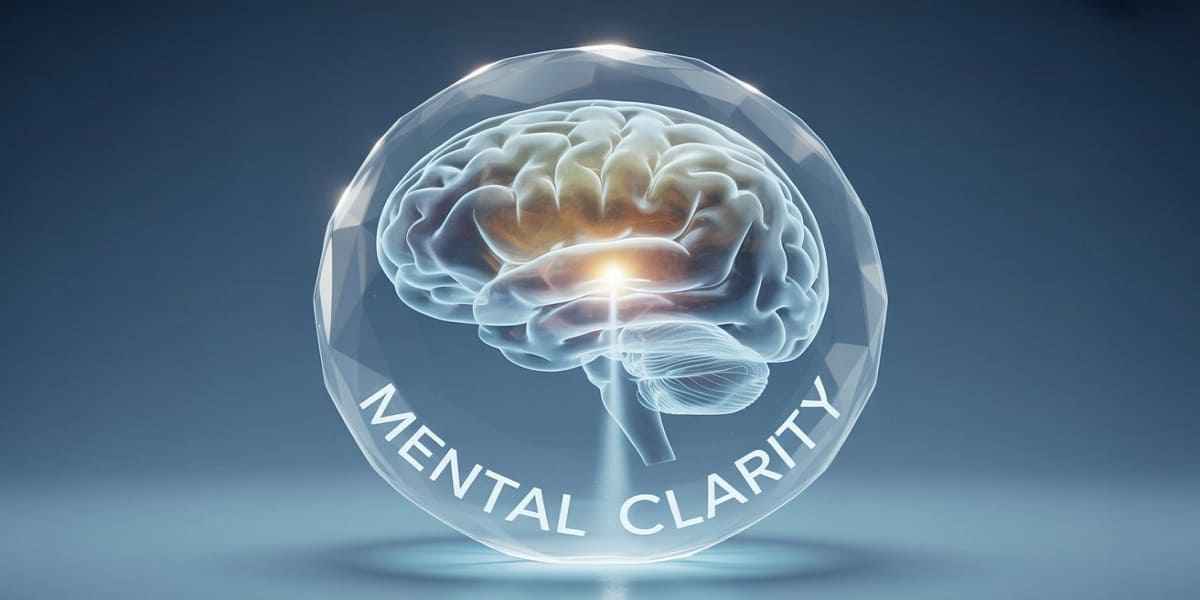
Mental Clarity for Better Output
You know that feeling, don’t you? The one where your brain feels like a tangled ball of yarn. Ideas bumping into each other. To-do lists swirling endlessly. Distractions pulling you in every direction. It’s a state of mental fog, a constant companion for many in our fast-paced world.
This lack of clear thinking, this mental clutter, directly impacts your ability to perform, to produce, to achieve. It hinders your better output.
But what if there was a way to cut through that fog? To sharpen your focus? To streamline your thoughts and actions, leading to significantly better output? This isn’t some abstract concept.
It’s a practical skill, a habit you can cultivate. It’s about creating mental clarity, a state where your mind is sharp, focused and ready to tackle any challenge. Are you ready to unlock that potential within yourself?
You’re constantly bombarded, aren’t you? Notifications ping. Emails pile up. Social media beckons. The demands of work, family and personal life converge into a chaotic symphony.
This constant external noise infiltrates your internal landscape, muddying your thoughts. It’s no wonder achieving mental clarity feels like an uphill battle. But it doesn’t have to be. This isn’t about escaping the world, but about mastering your inner world.
It’s about finding stillness in the storm, allowing you to operate with precision and purpose. Imagine what you could accomplish with that kind of focus. Imagine the level of better output you could achieve.
“The more you know yourself, the more clarity there is. Self-knowledge has no end.” – Jiddu Krishnamurti
Understanding the Enemy: What Steals Your Mental Clarity?
Before we can cultivate mental clarity, we need to understand what diminishes it. What are the common culprits that leave your mind feeling jumbled and your productivity lagging?
Information Overload: You’re swimming in data. Every day, you consume articles, videos, podcasts and countless other forms of information. While access to knowledge is a superpower, unchecked consumption leads to mental indigestion. Your brain struggles to process and categorize everything, leading to a feeling of overwhelm. Do you ever feel like your brain is just full?
Digital Distractions: Your phone is a powerful tool, but it’s also a master of distraction. Every notification, every quick check of social media, every rabbit hole you fall down online fragments your attention. These constant interruptions break your flow, making it nearly impossible to dive deep into meaningful work. How often do you find yourself reaching for your phone without a conscious reason?
Multitasking Madness: The myth of multitasking persists. You believe you’re being efficient by juggling multiple tasks simultaneously. In reality, you’re just rapidly switching between them, incurring a “Switch Cost” each time. This constant shifting drains your cognitive resources and reduces the quality of your work. Are you truly getting more done or just doing more things poorly?
Unresolved Issues and Stress: The worries, anxieties and unresolved problems in your personal and professional life don’t just stay in the background. They take up valuable mental real estate. Chronic stress floods your brain with cortisol, impairing your cognitive functions and making clear thinking almost impossible. What unresolved issues are currently occupying your mind?
Lack of Sleep and Poor Health Habits: Your brain needs rest to function optimally. Skimping on sleep is like trying to run a marathon on empty. Similarly, a poor diet and lack of physical activity directly impact your brain health and energy levels. Are you giving your body and mind the fuel and rest they need?
Cluttered Environments: Your physical surroundings often mirror your internal state. A messy desk, a disorganized workspace or a chaotic home environment can contribute to mental clutter. The visual noise competes for your attention, making it harder to focus. Do you find it easier to think clearly in a tidy space?
By identifying these clarity killers, you’re already taking the first step. Recognition is powerful. Now, let’s explore how to combat them and pave the way for consistent, impactful better output.
The Foundation of Focus: Essential Habits for Mental Clarity
Creating mental clarity isn’t about a one-time fix. It’s a journey, built on a foundation of consistent, intentional habits. These aren’t revolutionary concepts, but their cumulative effect is profound.
- Mindful Mornings: Set Your Daily Intention
How do you start your day? Do you immediately grab your phone, plunging into emails and social media? This reactive start sets a chaotic tone. Instead, reclaim your mornings. Dedicate the first 30-60 minutes to yourself. This could involve meditation, journaling, light exercise or simply enjoying a cup of tea in silence. The goal is to create a calm, intentional start that sets the stage for a focused day. This deliberate pause allows you to identify your priorities and approach your tasks with mental clarity. What small change could you make to your morning routine today?
“The greatest weapon against stress is our ability to choose one thought over another.” – William James
- Digital Detox: Tame the Tech Beast
Your devices are tools, not masters. Take control. Schedule specific times for checking emails and social media. Turn off non-essential notifications. Consider putting your phone away during focused work blocks. Create “No-Phone Zones” in your home, especially in the bedroom. This isn’t about disconnecting entirely, but about creating boundaries that protect your attention span and promote mental clarity. How much time do you spend mindlessly scrolling each day? Imagine redirecting even a fraction of that time to deep work for better output.
- Single-Tasking Supremacy: Do One Thing Well
Embrace the power of single-tasking. Choose one task, give it your undivided attention and complete it before moving to the next. This focused approach not only improves the quality of your work but also trains your brain to concentrate for longer periods. Use techniques like the Pomodoro Technique (25 minutes of focused work, 5 minutes break) to build your single-tasking muscle. Do you believe you can truly give your best to multiple things at once?
- Declutter Your Space, Declutter Your Mind
Your physical environment has a direct impact on your mental state. A clean, organized workspace reduces visual distractions and creates a sense of calm. Take a few minutes each day to tidy up your desk. Organize your digital files as well. A clear external environment often translates to a clear internal one, enhancing mental clarity and paving the way for better output. When was the last time you truly decluttered your workspace?
- Prioritization Power: Focus on What Matters Most
Are you constantly reacting to urgencies instead of focusing on what’s truly important? Learn to prioritize. Use tools like the Eisenhower Matrix (Urgent/Important) to categorize your tasks. Focus your energy on the important, non-urgent tasks that contribute to your long-term goals. This strategic approach reduces overwhelm and allows you to allocate your mental energy to high-value activities, leading to significantly better output. What are your top 3 priorities for today?
Deep Dive into Mental Clarity Techniques
Beyond foundational habits, specific techniques can actively cultivate mental clarity and enhance your ability to achieve better output.
- The Brain Dump: Empty Your Mental Cache
Your mind isn’t meant to be a filing cabinet for every fleeting thought, worry or to-do item. When your brain is overloaded, it struggles to process new information or focus on current tasks. This is where the “Brain Dump” comes in. Grab a pen and paper or open a blank document. For 5-10 minutes, write down everything that comes to mind – tasks, ideas, worries, questions, anything. Don’t filter, don’t organize, just get it all out.
Why is this so powerful? It externalizes your thoughts, freeing up mental RAM. Once everything is out, you can then organize, prioritize or discard. This simple act reduces cognitive load and creates space for focused thinking, directly contributing to your ability to achieve better output. How often do you feel like your thoughts are just swirling around in your head?
- Mindful Breathing: The Instant Reset Button
Stress and anxiety are major enemies of mental clarity. When you’re stressed, your sympathetic nervous system kicks in, flooding your body with stress hormones. This impairs your ability to think clearly. Mindful breathing is an immediate antidote.
Take a few deep breaths. Inhale slowly through your nose, feeling your belly expand. Hold for a count of four, then exhale slowly through your mouth, counting to six. Repeat this for a few minutes. This simple practice activates your parasympathetic nervous system, promoting relaxation and bringing you back to a state of calm focus. It’s a quick, accessible tool for regaining mental clarity anytime, anywhere. When do you feel most overwhelmed? Try this technique then.
“The mind is everything. What you think you become.” – Buddha
- The Power of “No”: Guarding Your Mental Energy
You are constantly asked for your time, your attention, your resources. Every “Yes” you give, especially to things that don’t align with your priorities, is a “No” to something else that could contribute to your mental clarity and better output. Learning to politely but firmly say “No” is crucial.
This isn’t about being unhelpful or selfish. It’s about protecting your most valuable resource: your focused attention. Before saying yes, ask yourself: Does this align with my goals? Do I have the capacity? Is this a productive use of my mental energy? Saying no liberates you from unnecessary commitments and allows you to channel your energy toward what truly matters, fostering mental clarity. What requests are currently draining your energy?
- Batching Similar Tasks: Optimizing Your Workflow
Context switching is a silent killer of productivity and mental clarity. Every time you switch from one type of task to another (Examples, Answering Emails, Then Writing a Report, Then Making Calls), your brain has to reorient itself, costing you time and mental energy.
Batching similar tasks involves grouping them together and tackling them all at once. For example, dedicate a specific block of time each day to only answering emails. Or make all your phone calls back-to-back. This minimizes context switching, allowing your brain to stay in a focused “Mode” for longer, significantly improving efficiency and fostering mental clarity. How much time do you think you lose switching between different types of tasks?
- Regular Breaks and Strategic Rest: Recharge Your Brain
You’re not a machine. Your brain needs downtime to process information, consolidate memories and recharge. Pushing through without breaks leads to burnout, reduced focus and ultimately, diminished mental clarity and poorer output.
Schedule regular short breaks throughout your workday. Stand up, stretch, walk around or simply look out a window. Take a longer break for lunch, away from your workspace. More importantly, ensure you’re getting adequate sleep. Prioritize sleep as much as you prioritize your work. These periods of rest are not wasted time; they are essential for maintaining cognitive function and achieving sustainable mental clarity. When was the last time you truly stepped away from your work for a decent break?
The Role of Physical and Emotional Well-being
Mental clarity isn’t solely a function of your thoughts. It’s deeply intertwined with your physical and emotional well-being. Neglecting these areas will inevitably impact your ability to think clearly and produce better output.
- Fueling Your Brain: Nutrition and Hydration
Your brain is an incredibly complex organ and like any organ, it needs proper fuel. A diet rich in whole foods – fruits, vegetables, lean proteins and healthy fats (Like those found in avocados and nuts) – provides the nutrients your brain needs to function optimally. Processed foods, excessive sugar and unhealthy fats can lead to brain fog, energy crashes and reduced cognitive function.
Don’t forget hydration. Even mild dehydration can impair concentration, memory and mood. Keep a water bottle handy and sip throughout the day. Are you giving your brain the best fuel possible?
“Take care of your body. It’s the only place you have to live.” – Jim Rohn
- Move Your Body, Free Your Mind: The Power of Exercise
Physical activity isn’t just good for your body; it’s a powerful tool for enhancing mental clarity. Exercise increases blood flow to the brain, delivering oxygen and nutrients crucial for cognitive function. It also releases endorphins, natural mood elevators that reduce stress and improve focus.
You don’t need to become a marathon runner. Even a brisk 30-minute walk several times a week can make a significant difference. Find an activity you enjoy and make it a consistent part of your routine. How does regular movement impact your mood and focus?
- Emotional Regulation: Managing Your Inner World
Unprocessed emotions – anger, frustration, sadness, fear – can create significant mental clutter. When you’re consumed by strong emotions, it’s incredibly difficult to think rationally or focus on tasks.
Developing emotional intelligence – the ability to recognize, understand and manage your own emotions and those of others – is key. This could involve journaling to process feelings, talking to a trusted friend or therapist or practicing mindfulness to observe emotions without judgment. Learning to effectively manage your emotional state is vital for maintaining mental clarity and achieving consistent better output. What emotions are currently impacting your ability to focus?
- The Importance of Play and Hobbies: Recharge and Rejuvenate
All work and no play makes for a dull, unfocused mind. Engaging in hobbies, pursuing creative interests or simply allowing yourself time for pure, unstructured play is essential for mental rejuvenation. These activities provide a mental break, allowing your brain to wander and make new connections, which can surprisingly lead to breakthroughs in your work. They reduce stress and inject joy into your life, both of which are critical for sustained mental clarity. When was the last time you engaged in an activity purely for fun, with no agenda?
Cultivating a Mindset for Sustained Mental Clarity
Ultimately, mental clarity is as much about your mindset as it is about your habits and techniques. It’s about how you approach your thoughts, your challenges and your life.
- Embrace Imperfection: Release the Need for Flawlessness
The pursuit of perfection can be a major source of mental clutter and anxiety. The fear of making mistakes can paralyze you, leading to procrastination and overthinking. Understand that perfection is an illusion. Focus on progress, not perfection.
When you release the need for everything to be flawless, you free up immense mental energy. You become more willing to take action, learn from your experiences and iterate. This iterative approach allows for consistent movement forward, fostering mental clarity and better output by reducing the mental burden of impossible standards. What’s holding you back from starting due to fear of not being perfect?
- Practice Self-Compassion: Be Kind to Your Mind
You are your harshest critic, aren’t you? The inner dialogue can be relentless, filled with self-doubt and negative judgment. This internal negativity creates significant mental noise and erodes your confidence, hindering your ability to think clearly.
Practice self-compassion. Treat yourself with the same kindness and understanding you would offer a good friend. Acknowledge your struggles without judgment. Understand that everyone makes mistakes and experiences setbacks. This compassionate approach reduces mental anguish and fosters a more supportive internal environment, making it easier to achieve and maintain mental clarity. How do you talk to yourself when you make a mistake?
“The mind is a powerful force. It can enslave us or empower us. It can plunge us into the depths of misery or catapult us to the heights of ecstasy. Learn to use it wisely.” – David Cuschieri
- Embrace the Beginner’s Mind: Lifelong Learning and Curiosity
A closed mind is a cluttered mind. When you believe you know everything, you stop learning, growing and adapting. The “Beginner’s Mind” – or Shoshin in Zen Buddhism – refers to having an attitude of openness, eagerness and lack of preconceptions when studying a subject, even when studying at an advanced level, just as a beginner would.
Cultivate curiosity. Ask questions. Be open to new ideas and perspectives. This continuous learning keeps your mind agile, adaptable and less prone to rigid thinking that can lead to mental ruts. It encourages exploration and innovation, directly contributing to your ability to think clearly and generate better output. What’s something new you’d like to learn or explore?
- Develop a Growth Mindset: Challenges as Opportunities
Do you view challenges as insurmountable obstacles or as opportunities for growth? A fixed mindset sees abilities as static and unchangeable, leading to a fear of failure and avoidance of difficult tasks. A growth mindset, on the other hand, believes that abilities can be developed through dedication and hard work.
Embrace challenges as opportunities to learn and expand your capabilities. This shift in perspective reduces the anxiety associated with difficult tasks, allowing your mind to focus on solutions rather than limitations. It empowers you to tackle complex problems with greater mental clarity and confidence, ultimately leading to superior better output. How do you typically react when faced with a difficult challenge?
- Reflect and Review: Learn from Your Experience
Consistent mental clarity isn’t just about doing; it’s about reflecting. Regularly set aside time to review your day, your week or even longer periods. What went well? Where did you lose focus? What caused mental clutter? What strategies helped you achieve mental clarity?
This intentional reflection allows you to identify patterns, learn from your experiences and refine your approach. It’s a continuous feedback loop that helps you optimize your habits and techniques for sustained mental clarity and even better output over time. How often do you pause to truly reflect on your experiences and learn from them?
Your Journey to Enhanced Mental Clarity and Better Output
Creating mental clarity for better output is not a destination; it’s an ongoing practice. It requires commitment, self-awareness and a willingness to experiment. The benefits, however, are immense.
Imagine a life where your thoughts are streamlined, your focus is laser-sharp and your actions are intentional. Imagine the level of impact you could have, both personally and professionally.
It begins with small steps. Pick one or two strategies from this guide that resonate most with you. Implement them consistently. Observe the changes. Over time, as you cultivate these habits and techniques, you’ll find that the mental fog begins to lift, replaced by a profound sense of calm and focus.
This state of mental clarity will not only enhance your productivity and lead to significantly better output but also enrich your life in countless other ways. You deserve a mind that works for you, not against you. Are you ready to begin your journey towards greater clarity and impactful results?
Call to Action
Ready to reclaim your mind and unlock your full potential? Start by implementing one new mental clarity habit this week. Share your chosen habit and your initial experience in the comments below! What small step will you take today to cultivate mental clarity for better output?
FAQs: How to Create Mental Clarity for Better Output
Q1. What is mental clarity?
A1. Mental clarity refers to a state where your mind is sharp, focused and free from clutter, distractions and overwhelm. It allows you to think clearly, make sound decisions and act with purpose.
Q2. Why is mental clarity important for better output?
A2. Mental clarity is crucial for better output because it directly impacts your ability to concentrate, solve problems, be creative and execute tasks efficiently. When your mind is clear, you can direct your energy effectively, leading to higher quality work and greater productivity.
Q3. What are some common things that steal mental clarity?
A3. Common culprits that diminish mental clarity include information overload, digital distractions, multitasking, unresolved stress and emotional issues, lack of sleep, poor health habits and cluttered physical environments.
Q4. How can mindful mornings help in achieving mental clarity?
A4. Mindful mornings help by allowing you to start your day intentionally and calmly. Dedicating the first 30-60 minutes to yourself (Example, Meditation, Journaling, Light Exercise) sets a focused tone, reduces reactivity to external demands and helps you prioritize for the day ahead, thereby improving mental clarity.
Q5. What is “Single-Tasking Supremacy” and why is it effective?
A5. Single-tasking supremacy is the practice of focusing on one task at a time until it’s complete, rather than juggling multiple tasks. It’s effective because it eliminates “Switch Cost” – the cognitive drain from rapidly shifting attention – leading to deeper focus, higher quality work and greater mental clarity.
Q6. How does decluttering your physical space contribute to mental clarity?
A6. A clean and organized physical space reduces visual distractions and creates a sense of calm. Your external environment often mirrors your internal state, so decluttering your physical surroundings can directly lead to a more organized and clear mind.
Q7. What is a “Brain Dump” and how do I do it?
A7. A brain dump is a technique to clear your mind by writing down every thought, idea, worry or to-do item that’s swirling in your head. To do it, grab a pen and paper (Or a digital document) and write continuously for 5-10 minutes without filtering or organizing, just getting everything out. This frees up mental space and reduces cognitive load.
Q8. How can mindful breathing instantly improve mental clarity?
A8. Mindful breathing, like deep belly breaths, activates your parasympathetic nervous system, which promotes relaxation and counteracts stress. By slowing your breath, you can quickly calm your mind, reduce anxiety and regain focus and mental clarity in moments of overwhelm.
Q9. Why is learning to say “No” important for mental clarity?
A9. Saying “No” to requests that don’t align with your priorities or capacity is crucial because every “Yes” consumes your valuable time and mental energy. By guarding your focus and protecting your boundaries, you prevent unnecessary commitments from creating mental clutter and draining your resources, thus preserving mental clarity.
Q10. How do nutrition and hydration impact mental clarity?
A10. Your brain needs proper fuel. A diet rich in whole foods and healthy fats supports optimal brain function, while processed foods can cause brain fog. Adequate hydration is also essential, as even mild dehydration can impair concentration, memory and mood, directly affecting mental clarity.
Q11. How does exercise contribute to a clearer mind?
A11. Exercise increases blood flow to the brain, delivering vital oxygen and nutrients. It also releases endorphins, which are natural mood elevators that reduce stress and improve focus. Regular physical activity, even a brisk walk, can significantly enhance cognitive function and mental clarity.
Q12. What is the role of emotional regulation in achieving mental clarity?
A12. Unprocessed or overwhelming emotions create significant mental clutter and make clear thinking difficult. Developing emotional intelligence – recognizing, understanding and managing your feelings – helps prevent emotional turmoil from consuming your mental space, allowing you to maintain focus and mental clarity.
Q13. Why is it important to embrace imperfection for mental clarity?
A13. The pursuit of perfection can lead to anxiety, procrastination and overthinking, creating immense mental clutter. Embracing imperfection or focusing on progress over flawlessness, frees up mental energy, encourages action and reduces the mental burden of impossible standards, thus enhancing mental clarity.
Q14. What is a “Growth Mindset” and how does it help with mental clarity?
A14. A growth mindset is the belief that your abilities can be developed through dedication and hard work, rather than being fixed. It helps with mental clarity by reframing challenges as opportunities for learning and growth, reducing the anxiety associated with difficult tasks and allowing your mind to focus on solutions rather than limitations.
Tags: Mental Clarity Productivity Better Output Focus Mindfulness Stress Management Digital Detox Time Management Brain Health Personal Growth Work-Life Balance Cognitive Function Habit Formation Self-Care Emotional Intelligence














